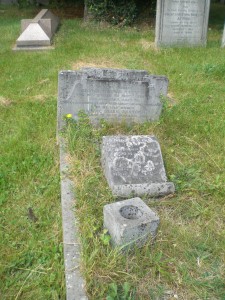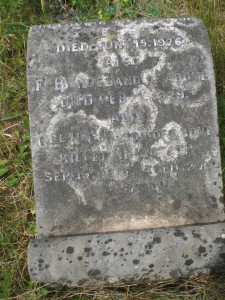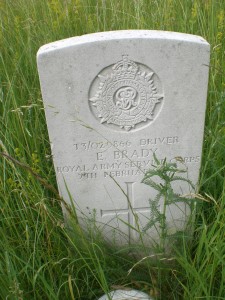Arthur Robert Brinkworth
Second Lieutenant
14th Battalion Royal Warwickshire Regiment
Division 32
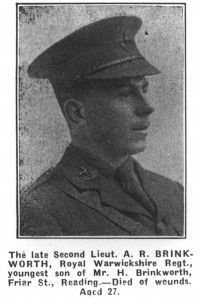 |
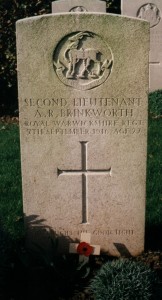 |
Arthur Robert Brinkworth known as Bob, was the youngest son of Mr Harry Brinkworth. Harry had the job of bringing up his four children. His wife was already dead by 1901. The 1911 census has the family living at 131. Friar Street, Reading. Bob’s age is given as 22 and his profession as a stockbrokers clerk. Harry Brinkworth ran his own business, first as a potato merchant and in 1911 is listed as fruiterer. He was assisted in the business by his oldest daughter Ellen Annie, aged 24. Bob is commemorated on the footstone of the family grave which unusually bears a cap and sword as part of the memorial.
 |
He died of wounds on 7th September 1916 aged 27. An obituary was published in the Reading Standard 23rd September 1916 from which the following details are taken.
Lieutenant Brinkworth had been educated at Christ’s Hospital, was a member of Reading Philanthropic Institution, Druids, and the Bohemian Club. He was a fine swimmer, tennis player and all round athlete. He had joined the O.T.C. in May 1915, was gazetted on July 1st and left for the front on May 20th. (No years given) He was greatly loved by all who knew him.
“Captain Neal wrote:- The battalion attacked and your son was with his platoon. He was badly wounded in the leg and died soon after he was taken down. I hope it will be a little comfort to you …when I tell you that after he was wounded he behaved in the most gallant manner possible – in fact I have never seen a braver wounded man. I had no hope when I saw the nature of his injury but he stuck to it splendidly…”
His Commanding officer wrote he was as “brave as a lion” and “I have had a cross made, and tomorrow I intend to ride over to the grave and have it erected and the ground put in order – the last tribute I can pay to one whose loss I mourn not only as a brother officer, but as a friend.”
In addition to these tributes his father received a telegram from the King and Queen.
Bob Brinkworth is buried in the Peronne Road Cemetery, Maricourt. Location III.H.I. The cemetery was begun by fighting units and used by Field Ambulances in the Battles of the Somme, 1916.
